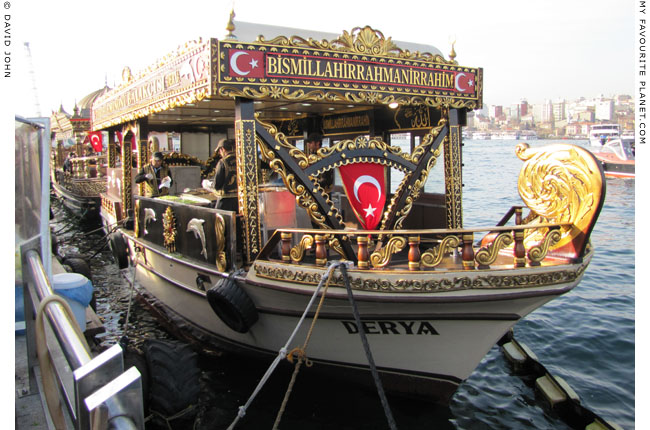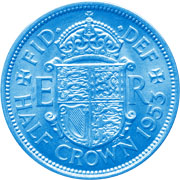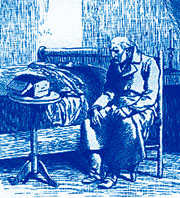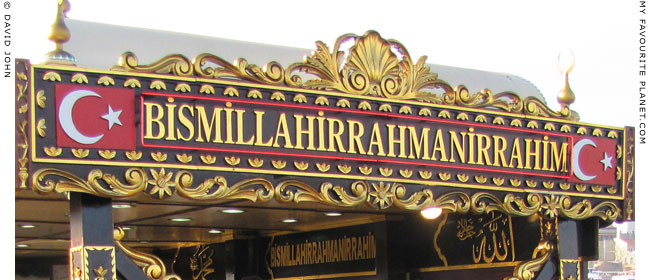|
|
 |
| My Favourite Planet > Blogs > Edwin Drood's Column > August 2010 |
 |
 |
back |
Edwin Drood's Column |
 |
17 August 2010 |
 |
| |
 |
 |
| Of sneezing uncles and apoplectic aunts |
| In which Edwin muses on the nature of remorse and whether one can ever do enough to right an injustice, or whether all that which one does, however much, can ever be considered appropriate expiation by anyone other than the victims themselves. |
“Bismillah hir-Rahman nir-Rahim”

“In the name of God, the Merciful, the Compassionate” |
... Or “in the name of God, the Beneficent, the Merciful” (there seems to be some confusion on the matter of correct translation): these words open the Quran and are probably the best-known phrase of Arabic outside the Arab world. However, they occupy a strange place in my family history. All of my ancestors have exhibited some form of strange comportment upon their invocation. For example, so I’m told, my Great Grandfather would observe a two-minute total silence, while my Great-Great-Uncle Algernon would immediately sneeze very loudly. Their sister Tabitha, an otherwise sweet-natured woman, would fly into an almost apoplectic rage and require dosing with salts and my Great Aunts, little Sylvia and Christabel, would run out of the room to stifle their spasms of laughter. Since the family were famous socialites, and quite likely to run into an Emir or three on their travels, who might very well utter this august verse at some time in their presence, their reaction was as embarrassing as it would appear puzzling.
 The story behind such strange, irreverent, impolite and bizarre behaviour is as follows: My great-grandfather, Sir Tristan Drood, 11th Earl of Elgin and Strathmere, was one of the most erudite and celebrated Orientalists of his generation. He endowed a chair of Levantine Studies at Edinburgh University and was for many years Head of the Department of Oriental Languages at Caius Cambridge. One of his many books, “Djinn House: a study of inebriation imagery in Sufism” is still regarded as an essential reference on the subject. But Sir Tristan, though a flawless scholar was a deeply flawed human being who, like many of his background and status, while having the resources to elevate his virtues, preferred to indulge his vices. His were two very Victorian weaknesses. The first was for corporal punishment (the giving not the receiving) and the second (which he liked to combine with the first) was for little boys. The high turnover in stable-lads at the manor house in the Northumbrian village of Blake Atherton was not openly remarked and would perhaps have remained unquestioned, had not one particular little chap grown up into a strapping lancer of six-foot-seven. This young officer, chancing to meet a much older and less vigorous Sir Tristan in London one day, struck my ancestor such an utterly unexpected and massive blow across the side of the head with the flat of his hand, that the Earl, though he recovered consciousness and normal movement an hour later, was thereafter reduced to a mental state that his London physicians, for want of a better diagnosis, referred to as obsessive mono-lingual sub-aphasia, a condition they considered quite harmless but incurable. |
| My cape and “Miss Miller” |
Sir Tristan’s illness manifested itself in two distinct and equally obsessive habits. The first was that his only words, from the day of the slap until the day he died some fifteen years later, were “Bismillah hir-Rahman nir-Rahim”, which he uttered once every three minutes in a resonant and solemn voice. The second was that he would take the newly-acquired Daimler and, after a brief fly by the bank, would drive to some market town or other, where he would spend the entire afternoon standing at the market cross, liberally dispensing half-crowns to every single little boy he met (and you can imagine he met a tremendous number once the news got about). This activity alone gradually led to the total impoverishment of the family. Because he looked rather like an old woman in his habitual rig of a battered tam-o’-shanter hat and an old Royal Strathmere tartan kilt over his knobbly shanks, and because he was regularly heard intoning his sacred mantra, he became known far and wide as either “Miss Miller” or “Near-a-Him”, depending which part of the invocation young ears had garbled.
 Sir Tristan Drood died alone in complete poverty at Blake Atherton Manor at the age of 95. In the end he only owned a bed, a chair, a table, an oil lamp and some books. All the rest – Blake Atherton, the house in London, the mansion at Elgin, the entire Strathmere lands, the Daimler – had long since become the property of that same bank that so eagerly, unquestioningly and readily provided him with bags of half-crowns two or three times a week, the same bank that recently, thanks to many millions in government support, famously survived a far deeper crisis than the loss of an earldom. The only things that remain to me now of my illustrious forbear are a dog-eared copy of an early 19th century edition of George Sale’s 1734 translation of the Quran, with many “exclamatory” notes in the margins regarding that particular scholar’s dubious knowledge of Arabic and a waxed linen highland cape that even on my tall frame still seems enormous. He must have been a giant of a man in his prime. God pity the poor urchins he used his birch on.
 |


An old British half crown
= 2 shillings & 6 pence
= 30 old pennies
= an eighth of a pound |
| |


Sir Tristan Drood died alone
in complete poverty ... |
| |
But what, you may ask, has any of this got to do with the construction, or not, of a mosque somewhere near Ground Zero in Manhattan?
 I rather think my great ancestor, literally stunned by the iniquity of his past, was atoning through generosity and compassion, like a latter-day Jean Valjean. His gesture was automatic, obsessive, but basically good ... like so many gestures of so many faiths: a genuflection, a sign of the cross, a coin in a plate, alms in the monk’s bowl, the routine motions of everyday compassion and charity that mean little individually, but a great deal in the mass. Yes, of course faith should see to the glorification of God as well as to the care of the needy. But when times are hard, these two things are one and the same. If American Muslims want to make a healing and conciliatory gesture, it would be better in the form of elementary and secondary education for the underprivileged in their countries of origin, in the refugee camps of Lebanon, in the villages of Southern Sudan, in the slums of Karachi, Lahore and Faisalabad, in the nameless streets of Gaza City.
 A mosque at or near Ground Zero is not just a bridge too far: it’s the wrong bridge in the wrong place. The world has enough places of worship, enough temples, enough synagogues, enough churches and enough mosques. It needs many more places of learning so that worship may once more become an act of fulfilment, a service informed and mature, rather than an act of last resort in the face of looming cataclysm. Mosque or no mosque will never be the question, so long as there is a beggar in rags and a sheik in a Roll-Royce who, nominally at least, are considered part of the same family, part of the same Umma, the same community of faith and the same temple of humanity upheld by the same Five Pillars. Shame on the faith of compassion for letting this happen, not once, but tens of millions of times!
 On my way back from France, I parked Miranda in a quiet market square near Annecy, while I went for lunch. On my return I noticed a vicious scratch (probably done with one of those diamond rings so beloved of North African rappers in the French suburbs) that ran right along one side, gouged clean through the Alvis’ seven coats of hardened Royal Blue lacquer right down to the very metal (aluminium on the doors, in case you’re interested). It seems Great-Great Grandfather must have run out of half-crowns long before he got this far.
© Edwin Drood, 17 August 2010
Illustration: "Bismillahhirrahmannirrahim", the restaurant ship Derya on the Bosphorus Strait, near the Galata Bridge, Istanbul.
photo: © David John |
|
 |
Edwin Drood's Column, the blog by The Mysterious Edwin Drood,

at My Favourite Planet Blogs.
We welcome all considerate responses to this article
and all other blogs on My Favourite Planet.
Please get in contact. |
 |
Visit the My Favourite Planet Group on Facebook.

Join the group, write a message or comment,
post photos and videos, start a discussion... |
|
Views of blog authors do not necessarily reflect those of the publishers
or anyone else at, on or in the vicinity of My Favourite Planet. |
 |
 |
|
|
| |
| |
|
| |
 |
| |
 |
| |
 |
| |

George Alvanos

rooms
in Kavala's historic Panagia District

Anthemiou 35,
Kavala, Greece

kavalarooms.gr
 |
| |

Olive Garden Restaurant

Kastellorizo, Greece

+30 22460 49 109

kastellorizo.de
 |
| |

Papoutsis
Travel Agency

Kastellorizo, Greece

+30 22460 49 286

greeklodgings.gr
 |
| |
|